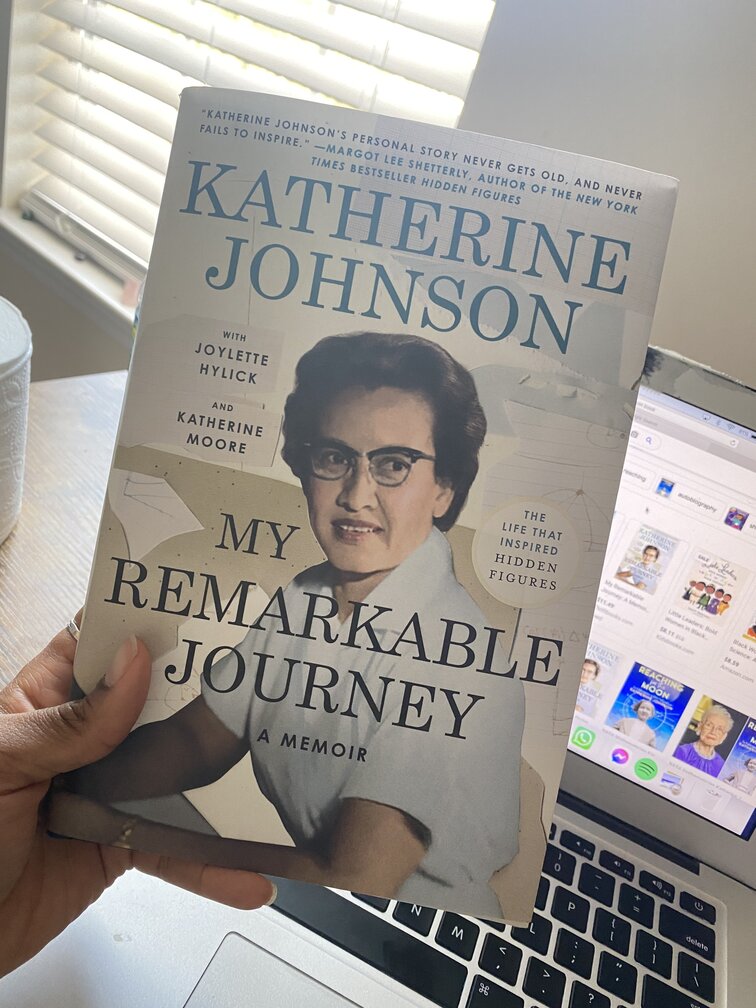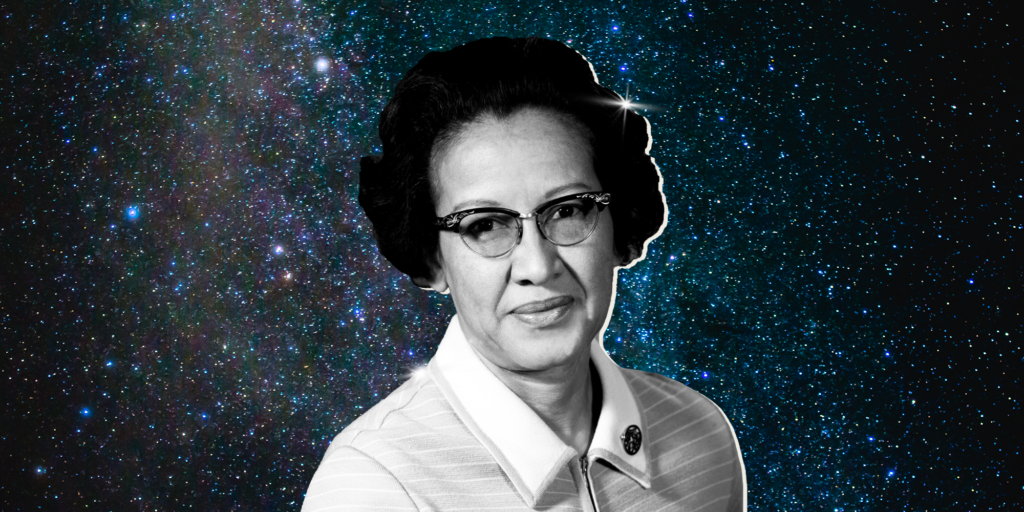Katherine Johnson Launched Astronauts into Space with These Mantras

The movie Hidden Figures made Katherine Johnson famous. Her calculations helped sent astronauts into outer space. But because she was Black and a woman, her achievements weren’t broadcasted until she was in her 90s. Born in 1918, she passed away on February 24, 2020 at 101 years old. As she said in her memoir, less than 1% of the human population lives to see an entire century.
She also shared that the movie, as all movies based on real life do, embellished her life a little and left out a lot. For the record: She loved it though. I bought her memoir to get to know more about Katherine Johnson—including and beyond her work at NASA. The book, by the way, is called: My Remarkable Journey.
5 aha moments I nodded to while reading the memoir of Katherine Johnson:

1. Ask every question you have.
She recalled asking a million questions as a kid and kept it up as an adult. She even recalled times she’d ask questions in class for her friends because, although she understood, she knew they didn’t. Even outside of school, she asked the hard questions. When her all-white-men NASA co-workers said she couldn’t join a particular meeting because girls weren’t allowed, she asked if it was against the law. It wasn’t and she got in.
2. Trust that what’s for you can’t not be for you.
I think it was two of her former professors who approached her one day with the once-in-a-lifetime opportunity to earn a PhD in mathematics. Before even talking to her husband about it, she said yes. Then she found out she was pregnant. To her, that was most important. So she turned down the opportunity (and let down her mentors), but becoming a research mathematician was meant to be a part of a story and so it was.
3. Know that everything been been lining up for you.
Her father could do big math problems in his head, and she took after him. One of her professors created a class just for her and TOLD her that she would take it. It was called Analytic Geometry of Space, and she had NO CLUE what it had to do with her life, but it made a difference. She and her family moved to Newport News after her brother-in-law suggested that he could get them good jobs. They went and it worked out. She joined a church where she met a local AKA sorority chapter, and those women turned her on to the NASA job. Got to NASA and one of her old college friends worked there. Her job was to assign everyone else. She ended up giving Katherine an opportunity to work in the most important department in NASA, the one that did the calculations to get the country’s first successful space mission.
4. Oppression is a bitch, but it ain’t a brick wall.
Katherine Johnson was making these moves in the days when Black folk and women had more hurdles than they do today. Jim Crow was walking around and women teachers were often fired if they got married because the Board decided for them that home life was more important than their career. And remember I said she asked her colleagues why she couldn’t go to the meeting, and they ended up letting her in? Imagine how many people don’t challenge it when they’re told no.
5. What you say to chi’ren and yourself matters like a mf.
Two things here: One, her father always told her that she wasn’t inferior to anyone nor was she better than anyone. He told her that so much that when the world tried its damndest to make her feel small, they couldn’t. Then she made me realize how I might’ve transferred my math-hate to my kids. Having been a teacher, she said: “It baffled me that so many students disliked math and struggled with it. I figured they had either a parent who didn’t like math and told them it was hard or a teacher who didn’t have the passion or the patience to make math relevant to their lives.”
Much love to our new and recurring monthly patrons:
Jessi, June Johnson, Yolanda Acree, Cala, D. Amari Jackson, Yvonne Carter, Black Art in America, Nakia Morgan, Yeseree’ Robinson, Akeem Scott, Rosa Bennett, Dee George, Danielle York, The Culturist Union, Keya Meggett, Add your name here
Your monthly contributions allow us to pay black writers and artists, and get more creative and consistent in the content we deliver. We put a lot of time, love, and money into researching, writing, and sharing. Click here to learn more.


